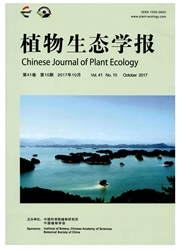

 中文摘要:
中文摘要:
微生物分解者的生存和生长策略、群落结构和功能会随着底物化学计量特征而改变,从而强烈地影响底物的分解速度和元素的周转速率,进而影响生态系统的功能过程。深入理解微生物生理代谢活动和群落结构与陆地生态系统过程之间的联系及其对全球变化的响应和反馈机理是生态学和全球变化生物学领域值得关注的重大科学命题。该文基于生态化学计量学理论和代谢理论,首先介绍微生物在陆地生态系统碳氮磷循环中的作用;然后综述微生物对分解底物化学计量变异性的响应和调节的4种主要机制:(1)调整微生物自身化学计量特征;(2)调整微生物群落结构;(3)产生特定的胞外酶以获取受限制的资源;(4)改变碳氮磷元素利用效率。最后,通过分析当前研究不足,提出该领域亟需关注的科学问题有:(1)综合阐明微生物对底物化学计量变化响应的各种机制及其相对重要性;(2)探索全球变化对微生物驱动的碳氮磷循环的影响;(3)探索微生物对底物化学计量变化适应对策的时空变化。
 英文摘要:
英文摘要:
The survival and growth strategies, community structure and functions of microbial decomposers vary with substrate stoichiometry, which profoundly influences substrate decomposition, turnover, and hence the carbon and nutrient cycles of terrestrial ecosystems. It is crucial to understand the relationships among microbial metabolism, community structure and ecosystem processes of terrestrial ecosystems and their responses and feedbacks to global changes. In this review, we first introduced the significance of microbial decomposers in the carbon, nitrogen, and phosphorus cycles of terrestrial ecosystems from perspectives of ecological stoichiometry and metabolic theories. Then we synthesized four potential mechanisms of microbial response and control on substrate stoichiometric variations, i.e., through(1) modifying microbial stoichiometry,(2) shifting microbial community structure,(3) producing extracellular enzymes to acquire limiting resources, and(4) changing microbial carbon, nitrogen, and phosphor use efficiencies. Finally, we proposed three research directions in this field:(1) to comprehensively explore various microbial mechanisms in response to changes in substrate stoichiometry and the relative importance of these mechanisms;(2) to examine influences of global changes on microbial-driven cycles of carbon, nitrogen, and phosphorus; and(3) to explore spatiotemporal changes in the strategies of microbial adaptation to changes in the substrate stoichiometry.
 同期刊论文项目
同期刊论文项目
 同项目期刊论文
同项目期刊论文
 期刊信息
期刊信息
